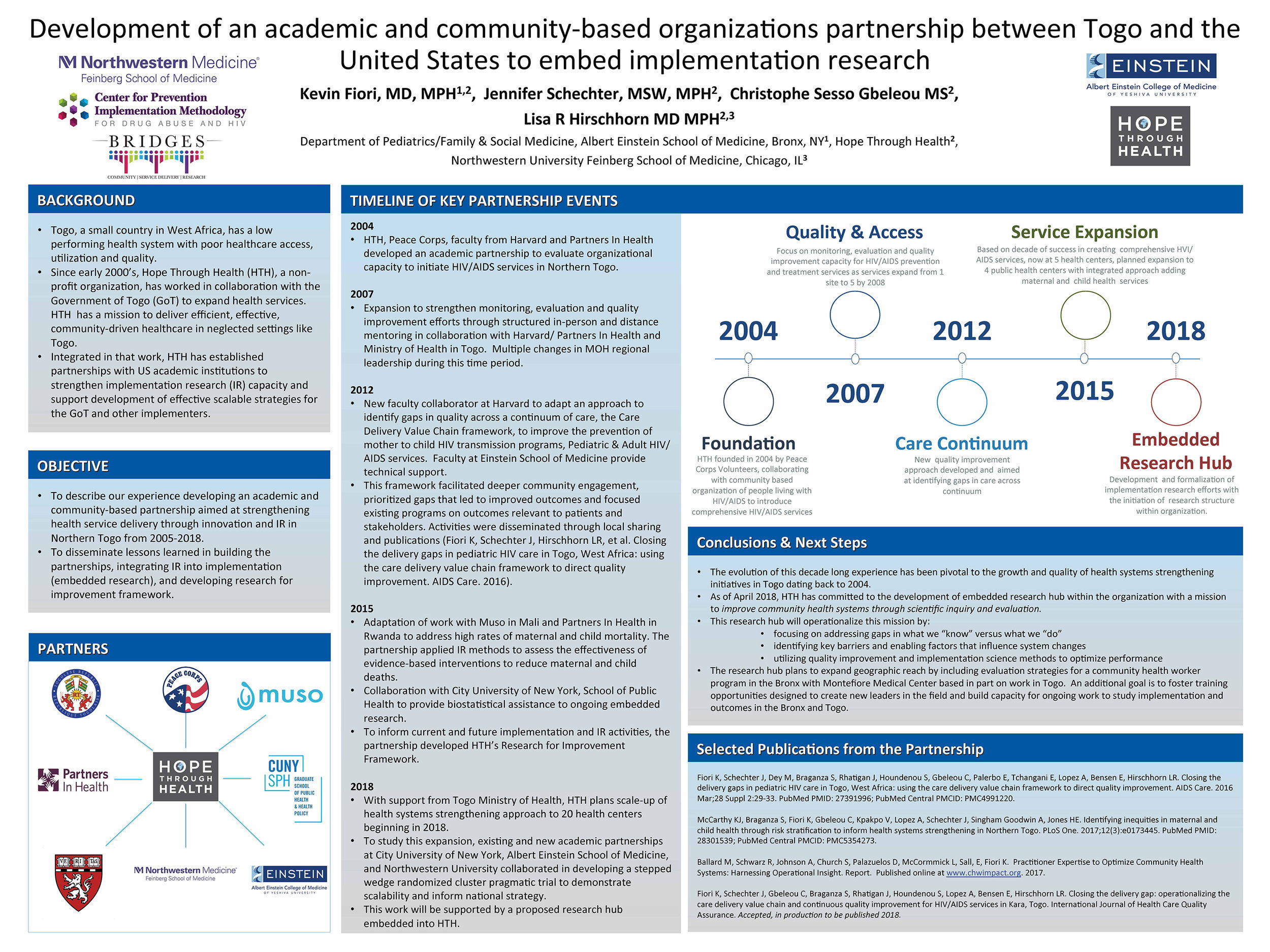Togo, a small country in West Africa, has a low performing health system with poor healthcare access, utilization and quality. Since early 2000’s, Hope Through Health (HTH), a non-profit organization, has worked in collaboration with the Government of Togo (GoT) to expand health services. Integrated in that work, HTH has established partnerships with US academic institutions to strengthen implementation research capacity and support development of effective scalable strategies for the GoT and other implementers.
Starting in 2004, HTH and faculty from Harvard developed an academic partnership to evaluate organizational capacity to initiate HIV/AIDS services. In 2007, the partnership expanded to strengthen monitoring, evaluation and quality improvement efforts through structured in-person and distance mentoring. In 2012 the partnership collaborated to adapt an approach to identify gaps in quality across a continuum of care, the Care Delivery Value Chain framework, to improve the prevention of mother to child HIV transmission (PMTCT) programs. This framework facilitated deeper community engagement, prioritized gaps that led to improved outcomes and focused existing programs on outcomes relevant to patients and stakeholders. These activities were disseminated through local sharing and paper publication.
In 2015, the partnership worked with organizations in Mali and Rwanda to address high rates of maternal and child mortality. The partnership applied implementation research (IR) methods to assess the effectiveness of evidence-based interventions to reduce maternal and child deaths. To inform current and future activities including IR, the partnership developed HTH’s Research for Improvement Framework (RIF). Building on pilot’s success, the partnership started planning scale-up to 20 health centers in 2018. To study this expansion, existing and new academic partnerships at City University of New York, Albert Einstein School of Medicine, and Northwestern collaborated in developing a stepped wedge randomized cluster pragmatic trial to demonstrate scalability and inform national strategy. The RIF is also being used to inform evaluation strategies for a community health worker program in the Bronx with Montefiore Medical Center based in part on work in Togo. To further build capacity, the HTH founder is in an IR training program designed to create new leaders in the field and build capacity for ongoing work to study implementation and outcomes in the Bronx and Togo. Discussion will focus on the lessons learned in building the partnership, integrating IR, and developing the RIF, as well as more traditional technical assistance and the value in dissemination and supporting program expansion that is responsive to identified needs.


